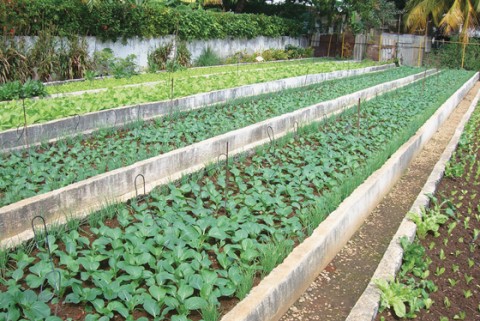Organic by necessity: Agriculture in Havana

Cuba is not a free country. It's hard to get around the fact that life is controlled by the state, and with that fact come many problems. There is a sense of collective unhappiness, even despair, which I would attribute to a basic lack of human agency. Economically, Cuba imports 84 percent of its food supply, including most of its meat and nearly all of its grain. That puts Cuba in the same food security category as Haiti, at least in terms of its reliance on foreign soil for nourishment.
In food production, the Cuban system supplies only 16 percent of the average Cuban's diet. Yet due to dire necessity, Cubans have gained a small victory in organic food production and are moving toward a more sustainable agriculture.
At one time the Soviet Union was Cuba's main trading partner, supplying the island with not only meat and grains but also fertilizer, pesticides, tractors and oil—all the standard trappings of industrialized agriculture. When the Soviet Union collapsed in 1991, Cuba was left scrambling to feed itself. Food disappeared from the shelves. Over the next three years, which Fidel Castro euphemistically dubbed "The Special Period in Peacetime," the average Cuban's daily caloric intake dropped from 3,000 to 1,800, well below what the FAO recommends as a daily minimum (between 2,100 and 2,300). Not enough people knew how to grow food; even fewer had access to land or tools or seed. If you were one of the 20 percent of Cubans who live in rural areas, you had a better chance of supplementing your limited food rations with wild coconuts and stray chickens. But if you were one of the remaining 80 percent in urban areas, you were entirely dependent on the state to feed you. Which means that for one out of three meals, you pretty much went hungry.




